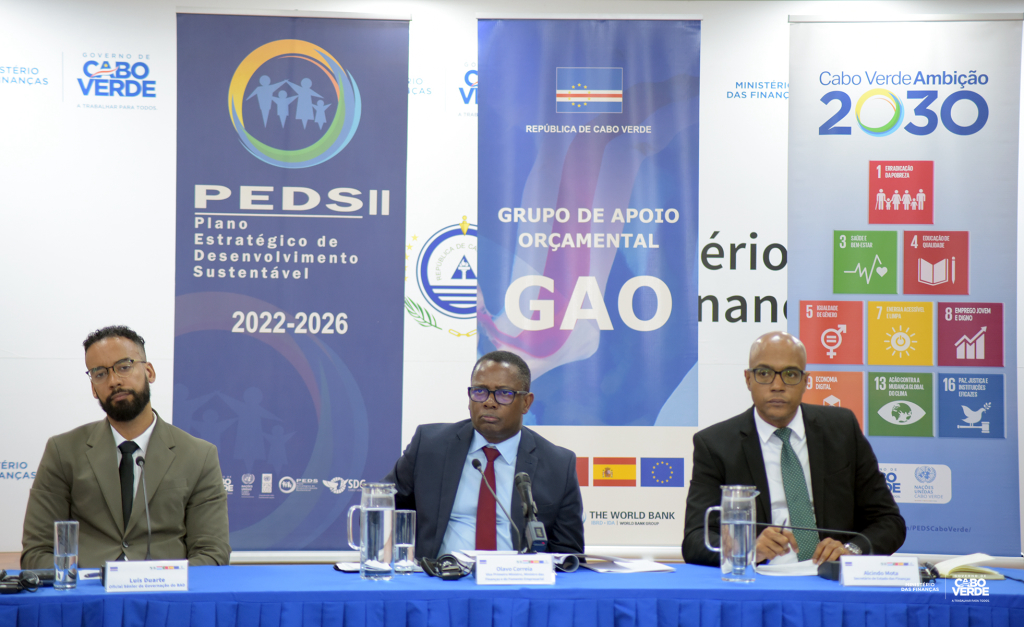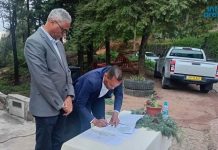Africa-Press – Cape verde. The Budget Support Group (GAO) recommended that the government strengthen structural reforms and accelerate economic diversification as a way to increase the country’s resilience to external shocks, in a context still marked by geopolitical uncertainties and potential increases in energy prices.
The Budget Support Group (BAG) concluded another assessment mission to the country, where topics related to macroeconomic stability, fiscal and debt situation, public finance management, public administration reform, employment, social protection, health, gender equality, climate action, blue economy, digital connectivity and transportation, among other strategic domains, were discussed.
At the end of the mission, the partners highlighted the 7.3% economic growth recorded in 2024, driven mainly by tourism, and welcomed the signs of fiscal consolidation, evidenced by a moderate deficit, positive primary balance and increased tax revenues. They also emphasized improving the public investment execution rate, which is crucial for fulfilling the Strategic Plan for Sustainable Development (PEDS II).
However, they warned of the uncertainties that persist, such as geopolitical tensions, inflationary risks and possible slowdowns in partner economies. In this context, they reiterated the importance of diversifying the economic base, expanding the tax base and rationalizing tax incentives.
Regarding the reform of the state business sector, GAO partners noted the completion of the privatization process of Caixa Econômica and the advances in the operation of CV Handling, which is scheduled for completion in the last quarter of 2025. They advocated for the continuation of reforms and better management of the sector, highlighting the budgetary risks associated with public companies.
On the blue economy, they encouraged the Government to clarify the regulatory frameworks for marine tourism and to accelerate the collection and sharing of marine data, with the support of the Blue Economy Steering Committee. They also advocate for the effective integration of gender strategies in this sector, ensuring equal opportunities for women.
The partners congratulated the country on the inauguration of the Technology Park on the islands of Santiago and São Vicente, but highlighted the importance of mobilizing private capital to ensure the sustainability of the digital strategy. In the transport sector, they encouraged the certification of Cabo Verde Airlines by September 2025 and recommended defining a clear fiscal framework, strengthening intermodality and promoting competition.
In turn, the Deputy Prime Minister and Minister of Finance and Business Development, Olavo Correia, acknowledged that there could be a decrease in financial support for the State Budget in 2025, but assured that Cape Verde has room for maneuver to maintain macroeconomic stability.
“In 2024, around R$54 million was disbursed. For 2025, a range of R$38 to R$40 million is estimated, but this is still an indicative forecast and is under negotiation,” he explained.
Olavo Correia highlighted that, in the event of a reduction, the country could compensate with internal resources or spending adjustments. Regarding the issue of the Mais Fund, Olavo Correia stated that the Government is evaluating increasing the percentage of tourism revenues allocated to this fund, which finances social inclusion projects. The final decisions, according to him, will be taken within the scope of the State Budget for 2026.
Regarding the recommendations of partners in the transport sector, the official assured that the Public Service Obligations (PSO) are already defined for air transport and that the government will move forward with their implementation. “We need a reliable, inclusive and sustainable transport system,” he said.
The governor acknowledged that the international context is uncertain and marked by a reduction in public development aid, which is why he advocates greater mobilization of endogenous resources, such as taxes, capital markets and private investment. “We have to rationally manage the evolution of public spending and create fiscal space by improving the performance of public companies,” he said.
The minister also responded to the recent reclassification of Cape Verde as an upper-middle-income country by the World Bank, allaying fears about the loss of access to concessional financing.
“We will continue to have access to IDA windows, but this classification opens up new opportunities. Today, for example, we have around 380 million euros mobilized in the Global Gateway package, with blended financing and other innovative instruments,” he highlighted.
For Olavo Correia, this change represents “a great opportunity” to modernize financing models and advance with greater scale and impact. “International partners trust Cape Verde. We, Cape Verdeans, have even more reason to trust them.”
s to trust in our future”, he concluded.
The Budget Support Group (BSG) country assessment mission, which took place from 24 to 30 June, was co-chaired by the Government and the African Development Bank Group, and was attended by the partners that make up the BSG, namely Luxembourg, Portugal, Spain, the European Union, the African Development Bank Group and the World Bank Group.
For More News And Analysis About Cape verde Follow Africa-Press






